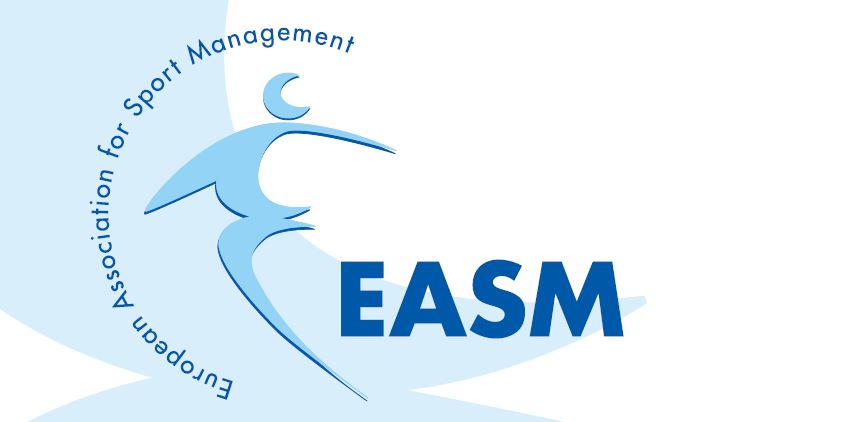
09 Dec Call for Papers, Joint Special Issue of ESMQ 2017, Vol. 17 (1)
Call for Papers, Joint Special Issue of ESMQ 2017, Vol. 17 (1)
Topics: Corruption in sport & Sport management issues in an era of austerity
Corruption in sport
Guest Editors Associate Professor Lisa. A. Kihl, University of Minnesota, Dr. Terry Engelberg, Griffith University, Professor James Skinner, Loughborough University, and Professor Stephen Moston, University of Canberra
Sport corruption is a worldwide threat to the integrity of sport, creating significant challenges for sport management scholars and practitioners. The sport industry has experienced multiple forms of corruption (e.g., fraud, bribery) that has ranged in extent (e.g., individual to systematic), occurred in varying contexts (sports, governance, online betting), and resulted in a multitude of consequences (financial costs, diminished reputations). The complexity and multidimensional nature of corruption has been discussed in various literature. Whilst this body of work has provided a sound starting point in the scholarly understanding, corruption in the sport industry has been largely underexplored. The global sport industry provides a rich context to substantially contribute to the scholarly discussion about corruption in terms of its conceptualization, causes, consequences, and reform.
The aim of this special issue is to build on the existing corruption research and increase our understanding of the complexity and multidimensional nature of corruption within the context of sport. We invite contributors to examine empirically and theoretically the nature, causes, consequences, and reform efforts of sport corruption in different contexts.
Possible topics include (but are not limited to):
- – Conceptions and typologies of sport corruption
- – Emerging trends in sport corruption and its implications for the business of sport (e.g., gambling led corruption, money laundering, national and international crime syndicates, national and international governance and regulation)
- – Measuring sport corruption and approaches to conducting research across the sport industry
- – Causes of sport corruption from individual/group, organization/industry/national, and across the system level of analyses
- – Consequences of sport corruption from micro to macro perspectives, drawing from different theoretical perspectives
- – Evaluation of the effectiveness of sport corruption reform strategies
- – Problems associated with current approaches to sport corruption prevention/reform
Please contact Dr. Lisa. A. Kihl via email if you have any questions: kihl@umn.edu
Sport management issues in an era of austerity
Guest Editors Dr. Daniel Parnell, Leeds Beckett University, Professor Karl Spracklen, Leeds Beckett University, and Dr. Peter Millward, Liverpool John Moores University.
The austerity measures ushered across Europe and Worldwide are not just worthless news headlines, meaningless figures on balance sheets, pointless social media notifications, or cuts to abstract places that exist ‘somewhere’. Rather cuts on public spending imposed by such measures have unintended consequences on real people and places. The long-term interaction between sport and politics is well documented. An example of this is the United Kingdom (UK).
An example of this is the United Kingdom (UK): The UK was governed for 13 years by the Labour Party. ‘New’ Labour, champions of the ‘third way’, ‘governance’ and ‘partnership’, who invested heavily in public services and reforms. By 2010, the British and global economy was in disarray, arising from a financial crisis that first emerged in 2008. Since May 2010, the UK has had a Conservative–Liberal Democrat coalition government, which has made significant attempts to tackle the economic downturn. Ultimately, via the Comprehensive Spending Review 2010, an outlined £81 billion worth of cuts across government departments by 2014/15 was delivered. Interestingly, a quarter of this was targeted at the welfare budget (which has been expanded further). Ultimately, an era has come to an end where sport has been supported and applauded, partly because of the financial crisis and partly because of a change in ideology. The consequences of this include wide-scale closure of leisure services, the transferal of physical resources to private or voluntary sectors, reorganization and reduction of local authority sport development units.
The purpose of this short UK example and insight is to pick out some of the pertinent (but not exhaustive) issues to the special issue: Sport management issues in an era of austerity. The aim of the special issue is to explore the consequence of these types of changes for sport, in doing so, we hope to (a) highlight the current state-of-play within sport development across European and International contexts, (b) to highlight some of theoretical, practical and policy implications related to sport management and (c) highlight future considerations for policy makers, applied researchers and practitioners.
Possible topics include (but are not limited to):
- – Changes in responsibility shifting from local authority to private enterprise,
- – Staffing changes towards the use of volunteers,
- – The role and servicing needs of volunteers and coaching staff,
- – Reduced funding for elite sport and impacts on sport policy,
- – National Governing Body strategies to deal with funding reductions,
- – Reduced funding for grassroots sport and its impact on lifelong participation,
- – The current state of school sport,
- – The emergence of social enterprise.
Please contact Dr. Dan Parnell via email if you have any questions: d.parnell@leedsbeckett.ac.uk
Journal and Submission Guidelines
European Sport Management Quarterly (ESMQ) is the official Thomson Reuters listed journal of the European Association for Sport Management. It has an international reputation for publishing high quality articles that contribute to our understanding of sport management and organizations at all levels. The journal is committed to publishing research that advances theory and its application to all aspects of sport management, including the management and governance of sport bodies in the public, voluntary and commercial sectors. ESMQ welcomes original investigations that contribute new knowledge to the field of sport management through theoretical development and empirical application. In addition to high quality theoretical and empirical papers that are relevant to the European context, the journal will publish contributions in which critical insight for sport management practice is developed from different cultural and global perspectives.
Abstracts should be structured in the following way including these headings:
1. Research question: Mention the main point of research and what your research tries to contribute. The research question should fill a research gap.
2. Research methods: Give some sentences on the methods used, the sample size and region your sample stems from.
3. Results and Findings: Mention the main findings, results, models you contribute to the literature and practice.
4. Implications: What your research contributes to the practice and/or theory.
*Each manuscript should have 5 key words.
Manuscripts must conform to ESMQ guidelines: http://www.tandfonline.com/action/authorSubmission?journalCode=resm20&page=instructions
Articles must be submitted in English and follow the guidelines of the Publication Manual of the American Psychological Association (6th edition). The abstract should not exceed 150 words and the paper should not exceed either 8.000 words or 30 pages in length (including references).
Special Issue Timelines
- – Invitation to participate in the Special Issue Workshop—@ the23rd EASM 2015 Conference (Dublin, IE, 9-12 September 2015), Submission deadline: 10th April 2015.
- – Full paper submissions for workshop, Submission deadline: 1st September 2015.
- – Full papers distributed to workshop participants prior, Date: 3rd September 2015
- – November 30th 2015 – the strict deadline for submissions of manuscripts to the ESMQ ScholarOne Manuscripts site: http://mc.manuscriptcentral.com/resm.
- – February 2017 – publication of special issue as European Sport Management Quarterly (17,1)


